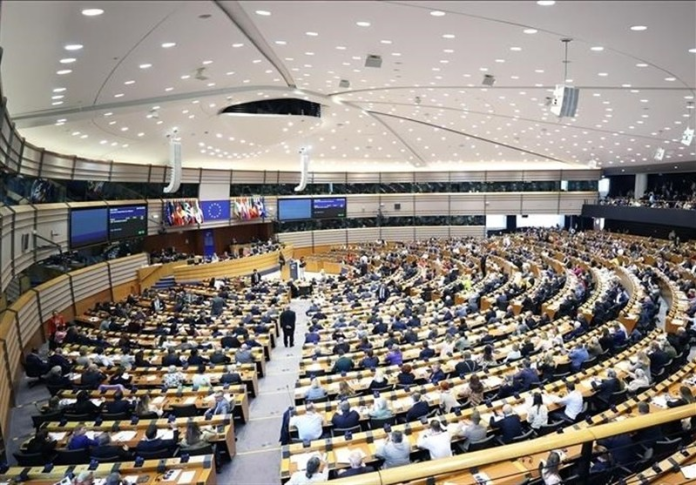A significant internal confrontation is unfolding within the European Commission as civil servants increasingly defy institutional directives to remain politically neutral, arguing the EU’s failure to pressure Israel over alleged war crimes in Gaza violates their legal and ethical obligations, according to Politico.
Over 1,500 officials, ranging from junior analysts to senior cabinet members, have endorsed an open letter condemning the bloc’s inaction, warning of “exponential” starvation-related deaths unless aid access improves.
One official, identifying only as Ramona, stated the institutions had imposed “complicity” on employees and violated “moral and legal obligations,” while suppressing “conscientious resistance” against Israel’s military operations.
The revolt intensified following the EU’s refusal to suspend the EU-Israel Association Agreement, despite its own review finding Israel breached human rights obligations. Amnesty International Secretary General Agnès Callamard denounced the decision as a “cruel and unlawful betrayal” that effectively greenlights Israel’s actions in Gaza.
Staff contend their protests aim not at politics but at compelling the EU to uphold its founding principles and international law.
Commission spokesperson Arianna Podestà categorised staff activism as inappropriate political expression, insisting workplaces “are not the place for activism” and demanding officials protest only through internal channels like staff unions.
However, protesters report systematic suppression, citing incidents where security personnel forcibly removed seven officials wearing “Say no to genocide” shirts from a canteen, twisted one individual’s arm, and compelled another to delete protest footage.
An internal group, EU Staff for Peace, also alleged unexplained contract non-renewals and a ban on pro-Palestinian surveys in a letter to EU leadership.
The friction extends beyond diplomatic policy to concrete economic ties. A Global Witness investigation revealed the EU’s 2022 gas memorandum with Israel, automatically renewed in June 2025, relies on the East Mediterranean Gas (EMG) pipeline traversing Palestinian waters without consent or compensation. Legal experts assert this arrangement breaches international law.
Professor Gleider Hernández stated that Israel’s pipeline construction “probably commit[s] an unlawful act” as an occupying power, making EU complicity “a breach of obligations.”
Industrial action remains under consideration, though trade unions are divided on endorsing strikes. Some staff believe work stoppages could be legally justifiable as efforts to enforce the EU’s human rights obligations, particularly after the International Court of Justice’s 2024 advisory opinion demanding an end to Israel’s occupation.
